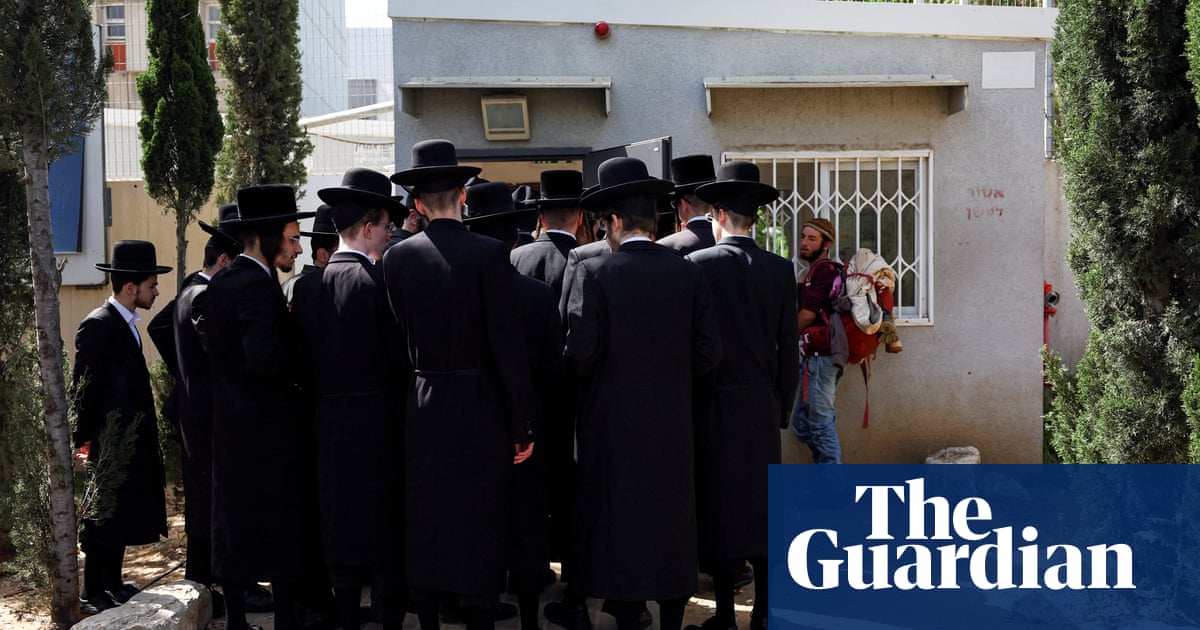World
Israeli court rules ultra-Orthodox men must be drafted for military service

Israel’s supreme court has ruled that ultra-Orthodox Jewish men must be drafted into military service, a politically explosive decision that threatens the stability of Benjamin Netanyahu’s coalition government.
The unanimous ruling on Tuesday, from an expanded panel of nine judges, upheld an interim decision last month that the state had no authority to offer the current exemption for ultra-Orthodox, or Haredi, men. It found that yeshivas – Orthodox seminaries for Torah study – should be ineligible for state subsidies unless students enlisted in the military.
The court ruled the state was carrying out “invalid selective enforcement, which represents a serious violation of the rule of law, and the principle according to which all individuals are equal before the law … In the midst of a gruelling war, the burden of inequality is harsher than ever and demands a solution.”
Ostensibly, the court decision ends a decades-old cultural and societal row over the importance of Torah study in modern Israeli life, and who should bear the burden of conscription. But the timing, in the midst of the war in Gaza and as Netanyahu struggles to hold together a rightwing coalition that includes two ultra-Orthodox parties, is more likely to inflame existing tensions between secular and religious elements of society.
The powerful ultra-Orthodox Shas and United Torah Judaism (UTJ) parties, key Netanyahu allies, have often threatened to quit his coalition and force new elections if draft exemptions for their communities were ended. Netanyahu, facing corruption charges he denies, is believed to view remaining in office as his best chance of avoiding prosecution. As such, he is seen as hostage to the demands of his coalition partners.
Mandatory army service for Jewish citizens is a large part of the Israeli national ethos, but longstanding legal compromises have to date exempted Haredi men, who instead continue full-time study of religious texts funded by government stipends. Whether Haredi women serve is viewed as less controversial, as women are much less likely to be drafted into combat units.
As the ultra-Orthodox population has grown – the community now makes up 13% of Israel and is projected to become 21% of the population by 2042 – military officers and reservists have become increasingly angry at the status quo, which they say ensures the Haredi community is unfit to contribute to the military or to the workforce.
During hearings, government lawyers told the court that forcing ultra-Orthodox men to enlist would “tear Israeli society apart”. On Tuesday, Yitzhak Goldknopf, a UTJ minister, called the decision “unfortunate and disappointing”. He told Kan Radio: “The state of Israel was created to be a home for the Jewish people, and the Torah is the cornerstone of its existence. The holy Torah will win.”
The Movement for Quality Government in Israel, a pro-democracy pressure group and the principal petitioner in the case, welcomed the court’s decision. “The high court’s decision is a historic triumph for the rule of law and the principle of equal military service burden,” it said.
Benny Gantz, a centrist opposition politician and Netanyahu rival who quit the war cabinet earlier this month citing disagreements with the prime minister over issues including a hostage deal and ultra-Orthodox conscription, blamed the impasse on the coalition.
He wrote on X: “My Haredi brothers, it isn’t you and it isn’t the court. It’s the prime minister and the ministers in his government that haven’t sought out solutions for the draft and serving the nation. Rather, [they have sought out] solutions to help bolster the coalition. It is not too late to reach an agreement.”
The court did not set quotas for ultra-Orthodox enlistment, leaving that to the government and army.
Tens of thousands of Israeli troops have been called up since the war began on 7 October, many for months on end, and 600 have been killed in the fighting. Last week, citing troop shortages, the government backed a draft bill that would raise the exemption age for reservists and expand the length of service, causing widespread anger.
In an effort not to alienate Haredi parties and voters, successive Israeli governments have stalled on the issue of ultra-Orthodox conscription, despite a 2017 supreme court ruling that the exemptions are unconstitutional. The prime minister has been promoting a compromise bill tabled by a previous government in 2022, but it is now unclear whether he will be able to postpone the issue again.







:max_bytes(150000):strip_icc()/roundup-writereditor-loved-deals-tout-f5de51f85de145b2b1eb99cdb7b6cb84.jpg)


